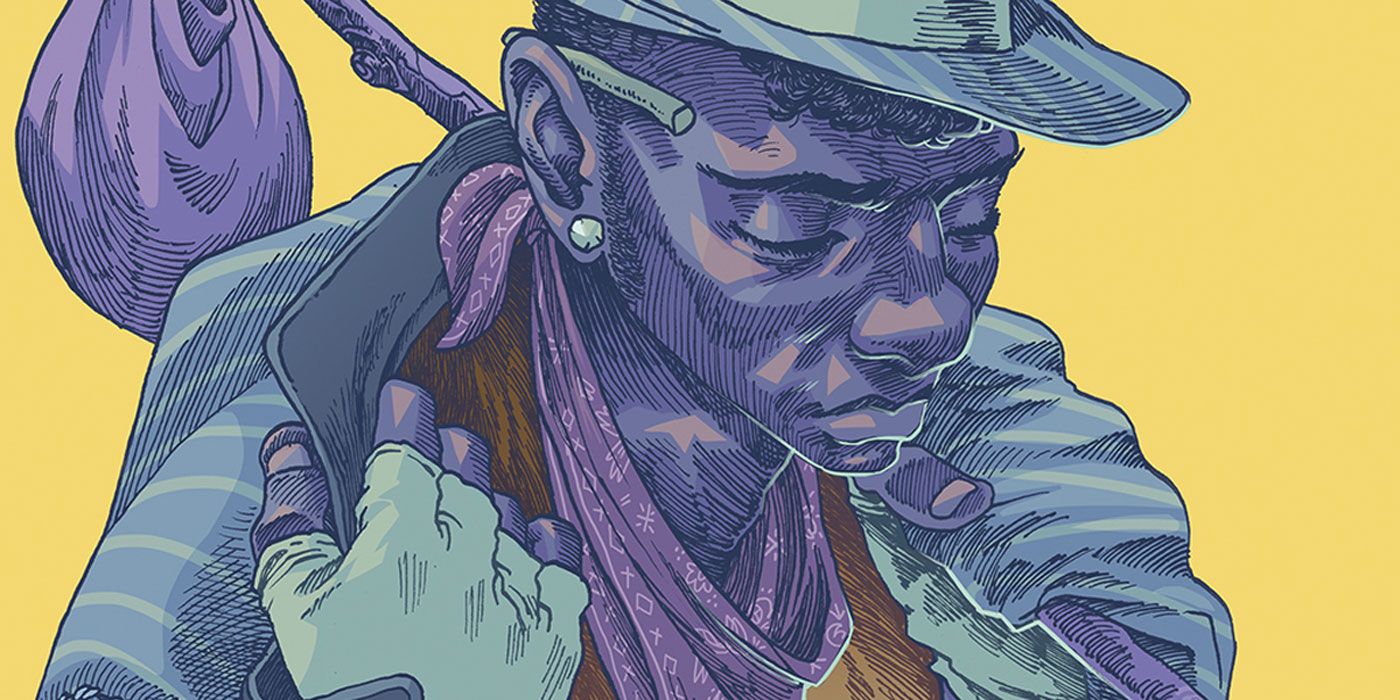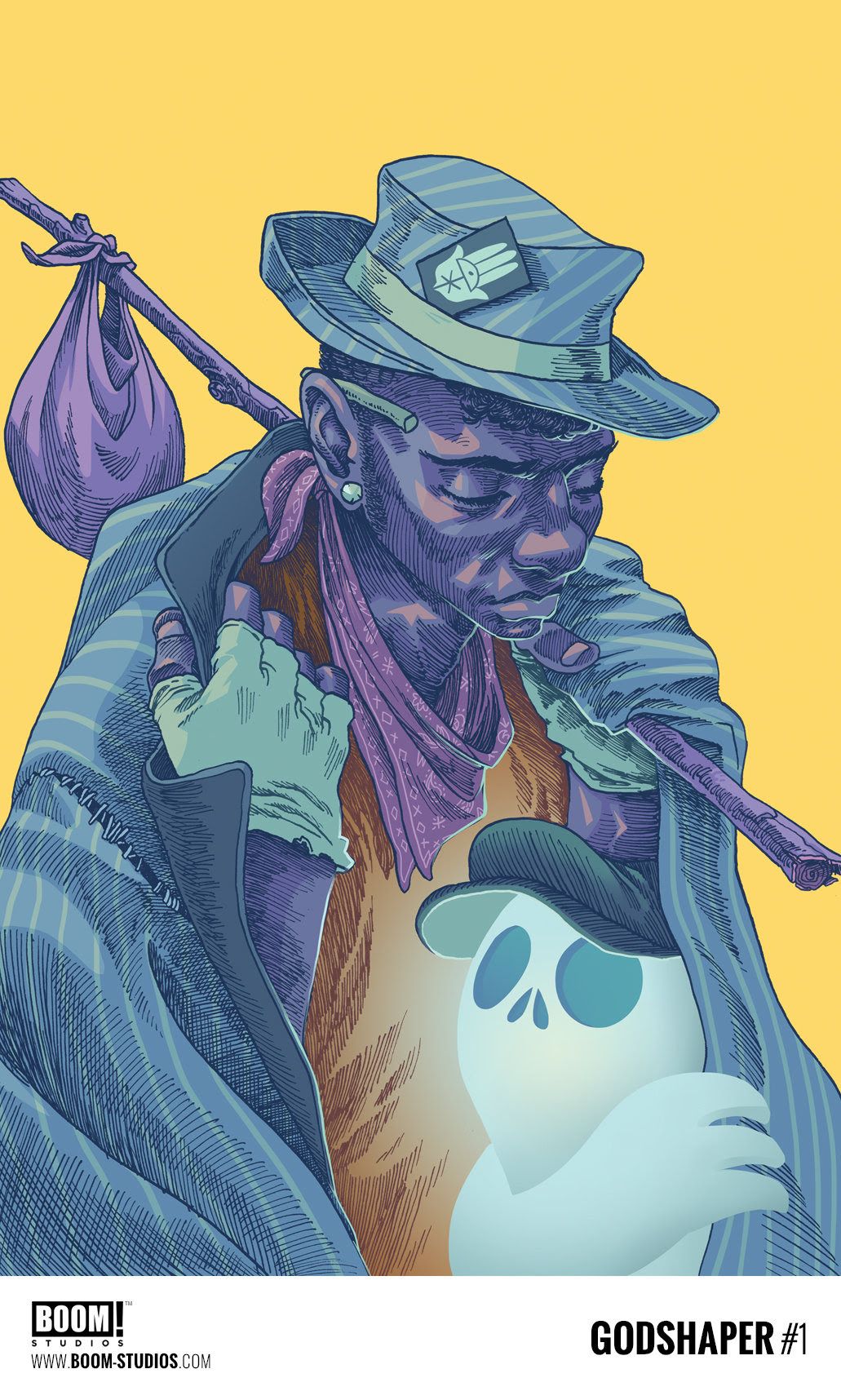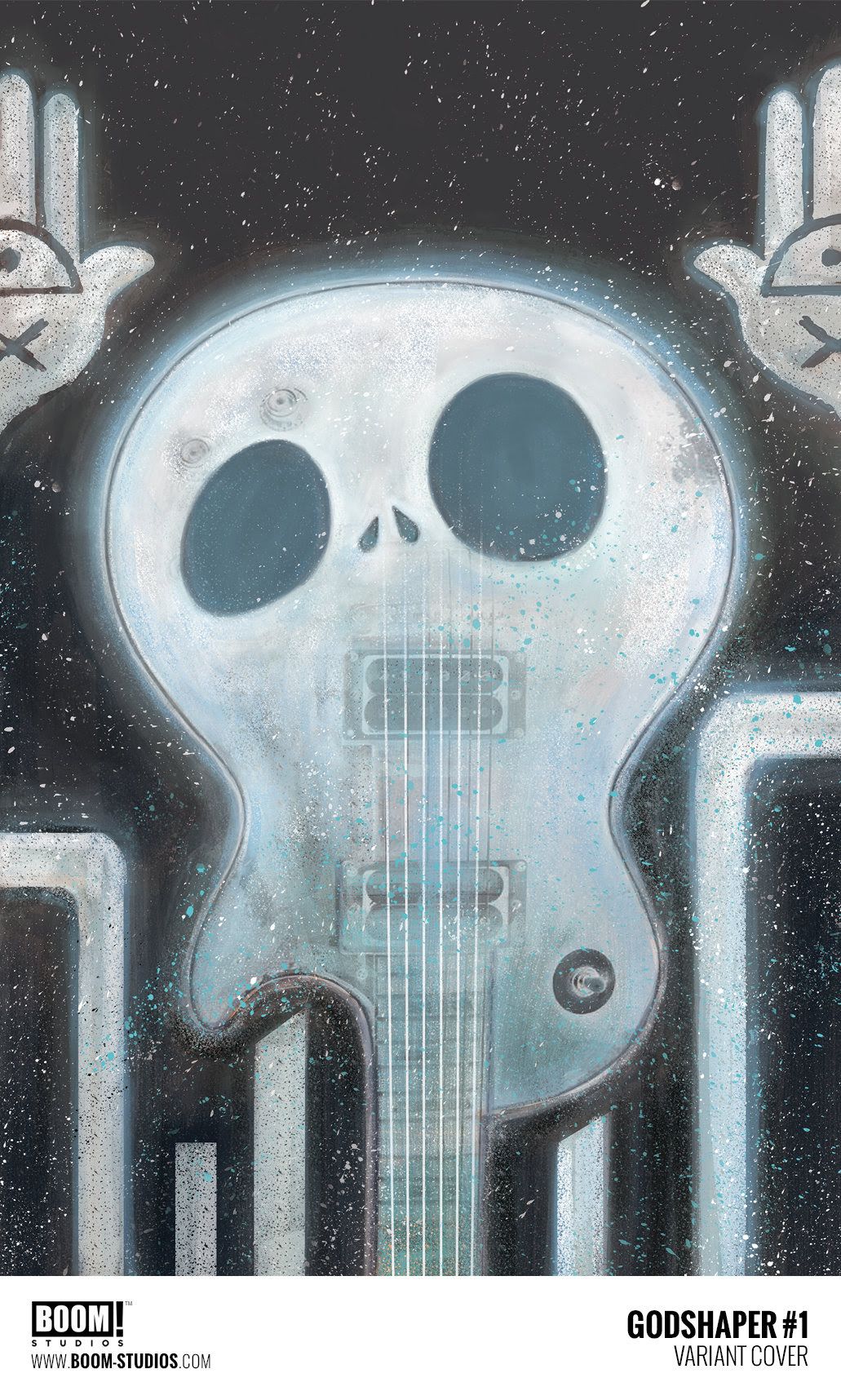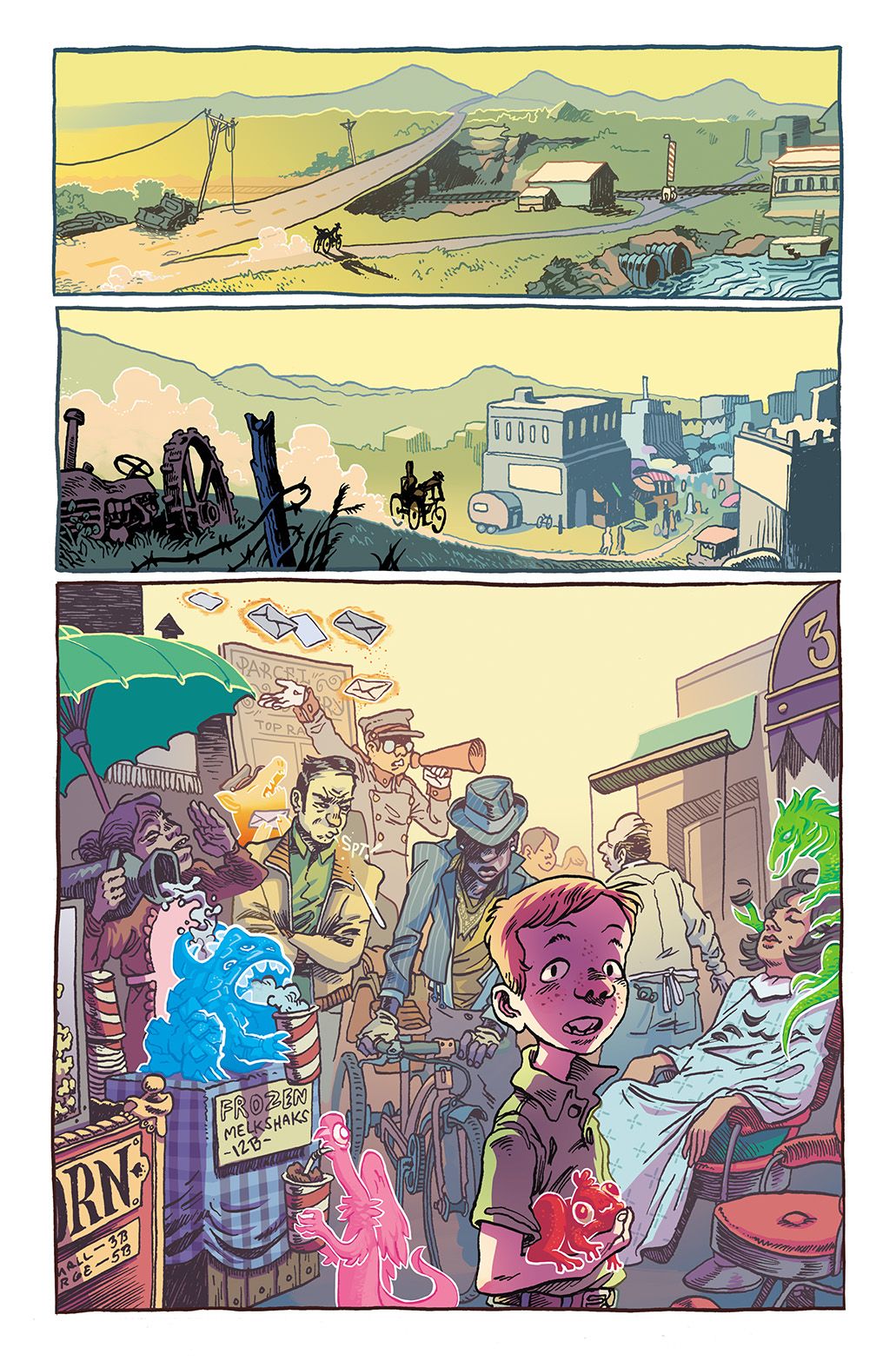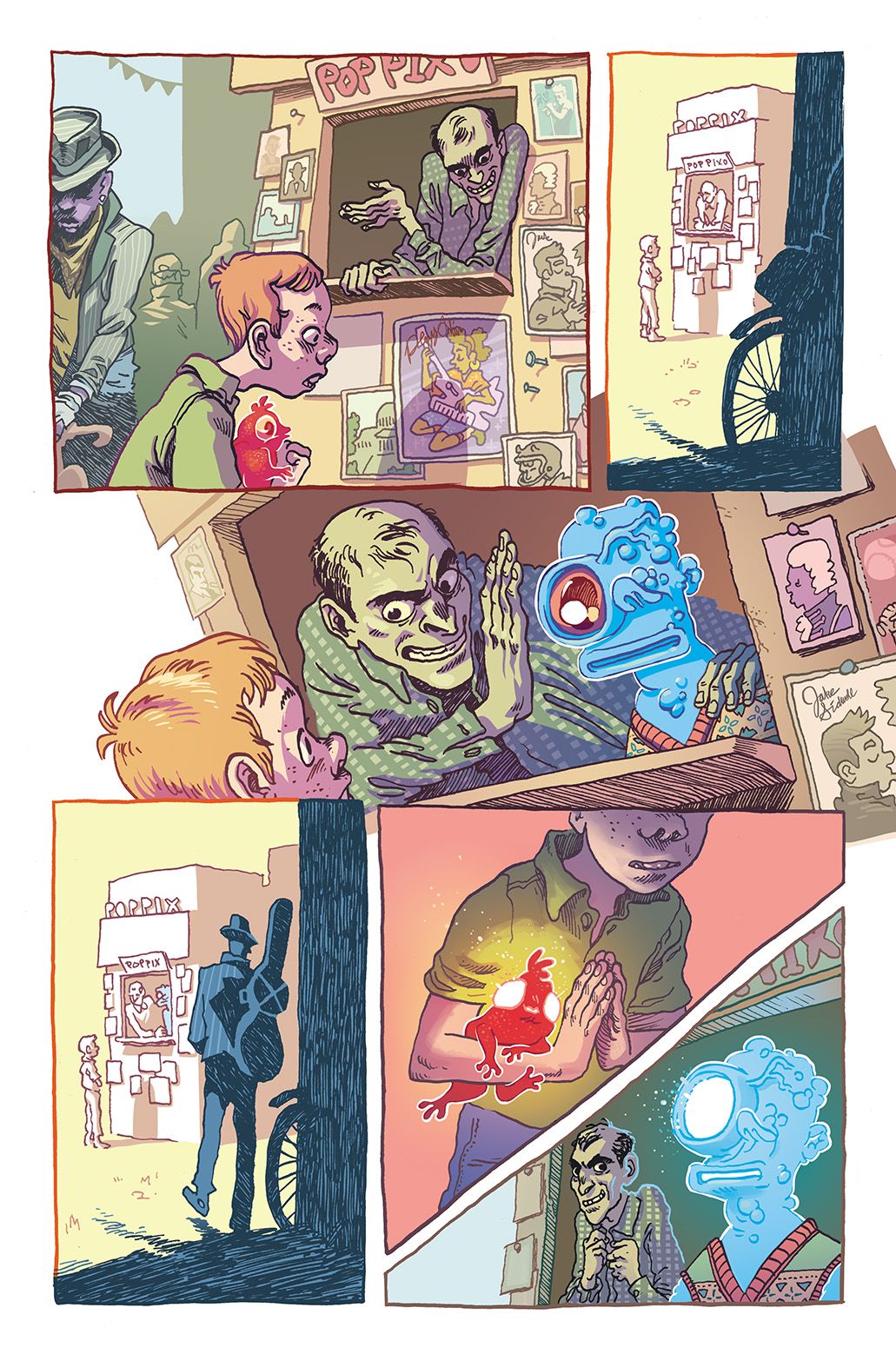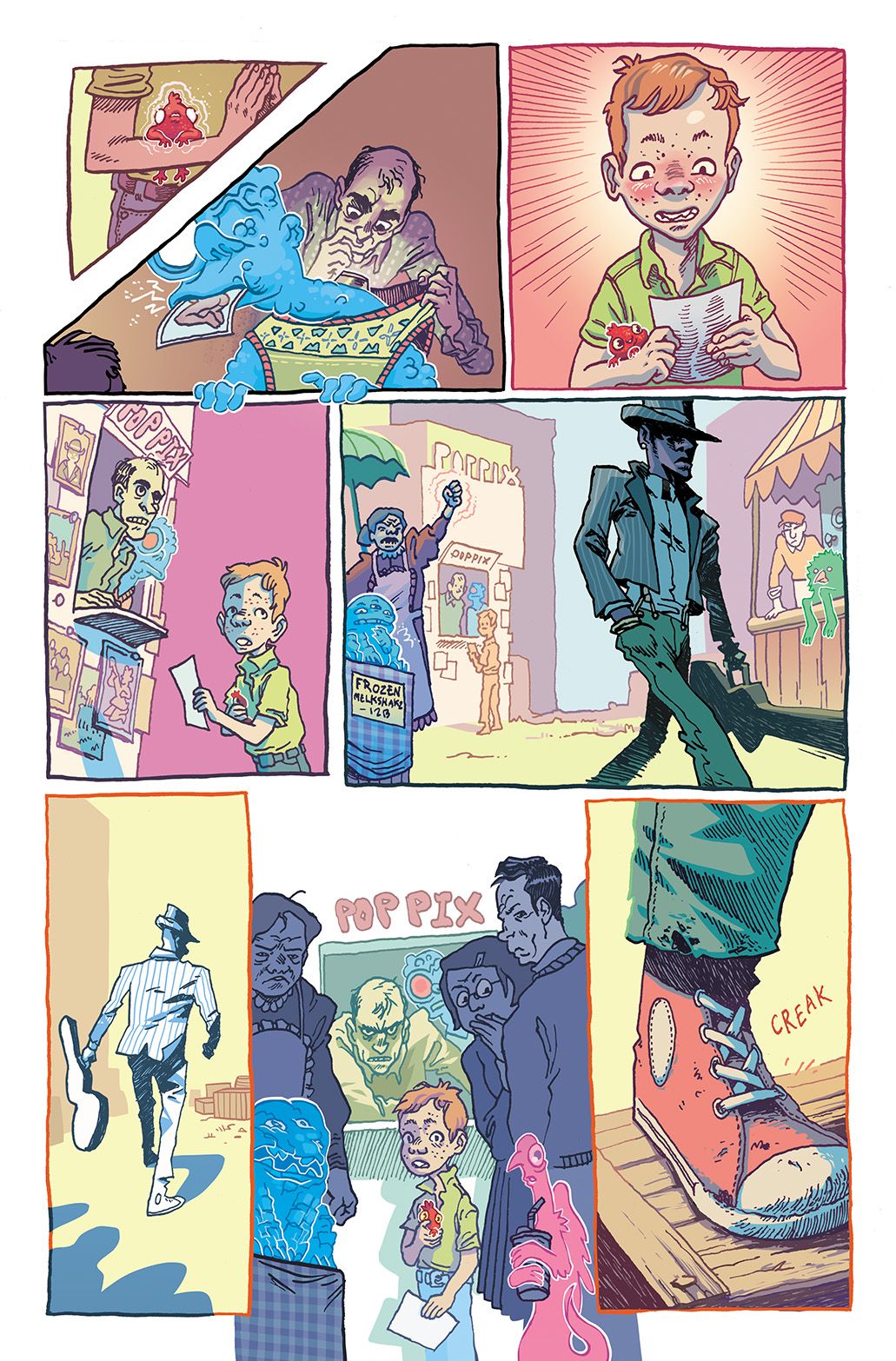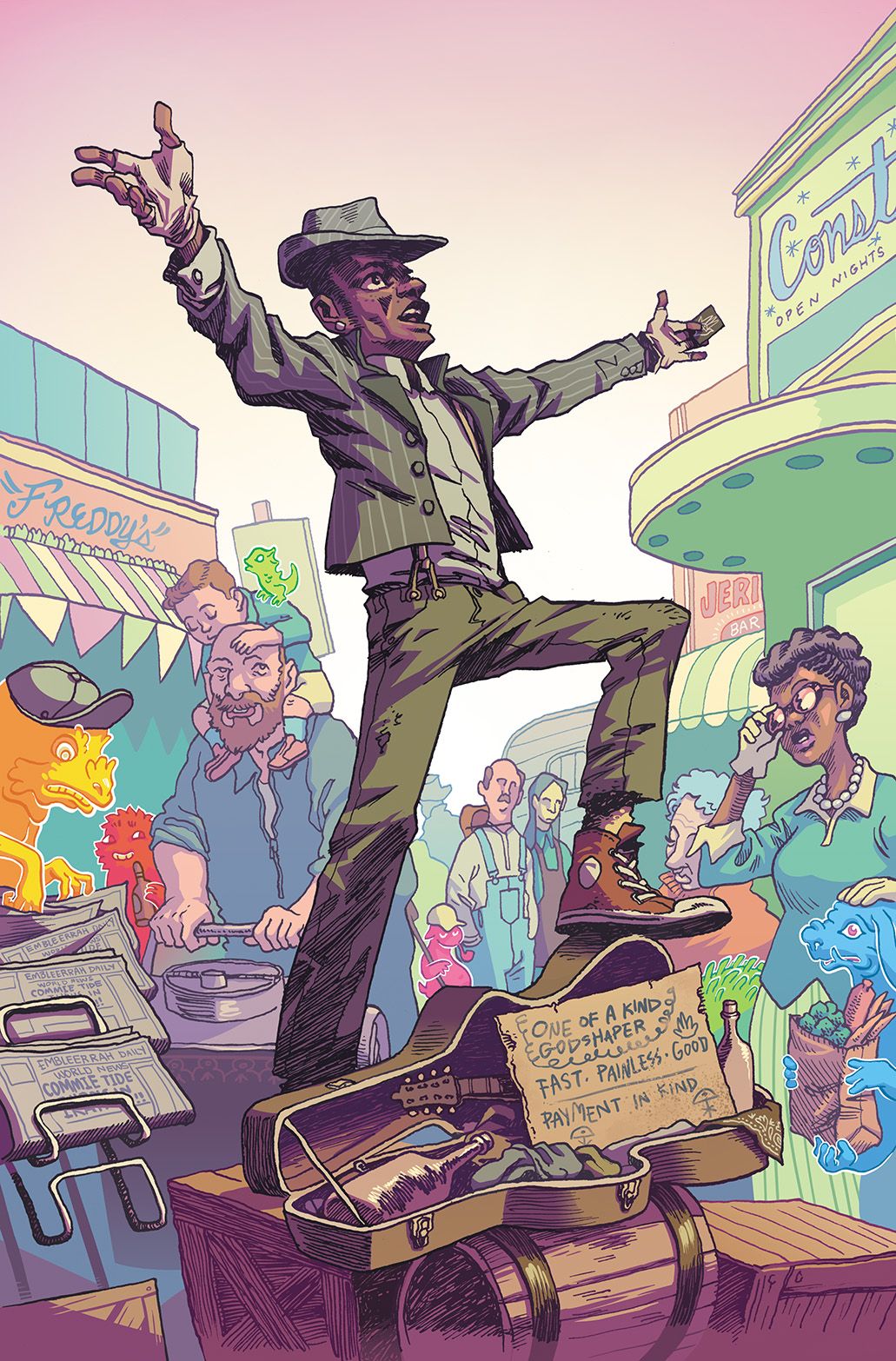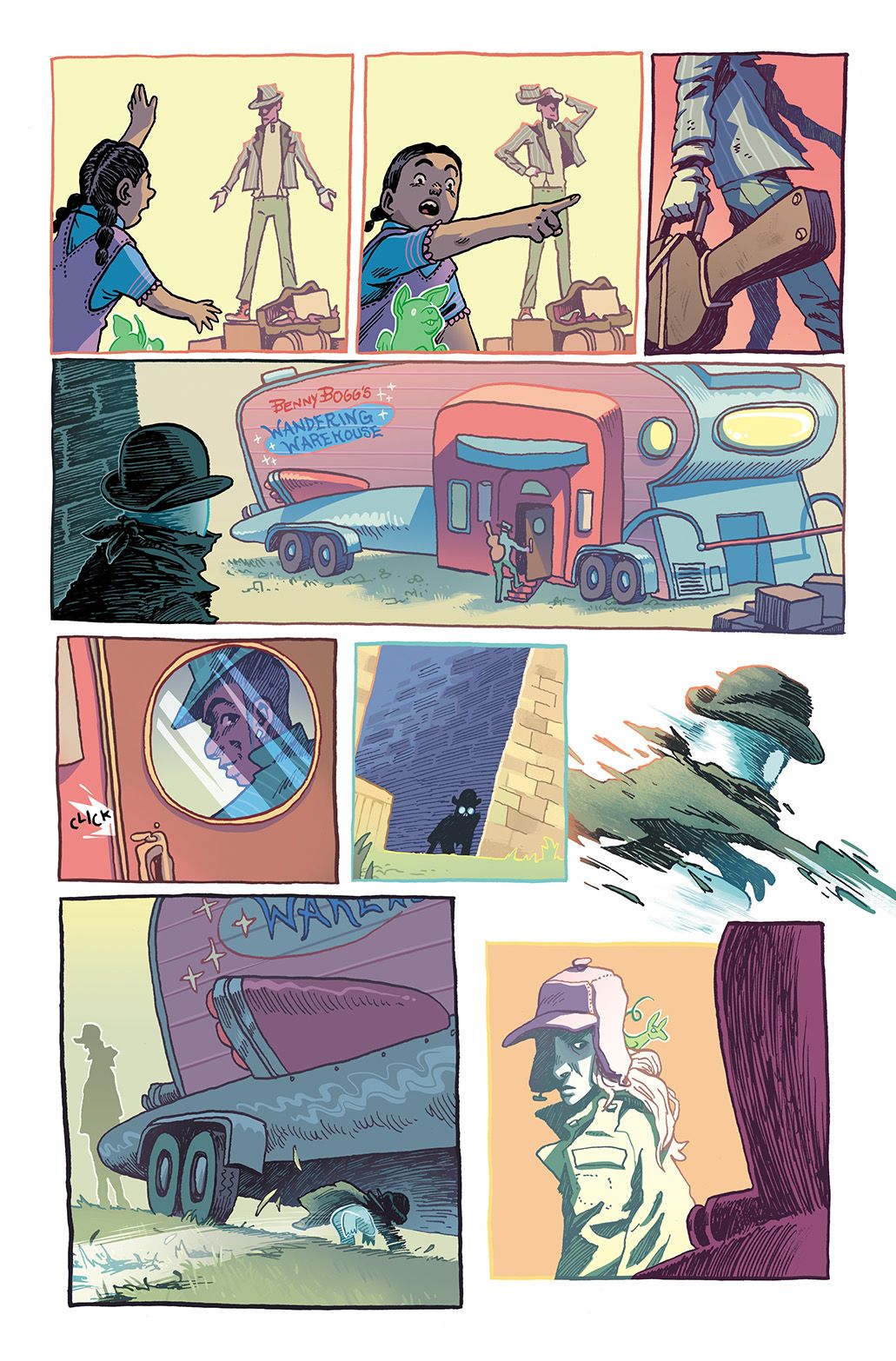Simon Spurrier plans on mixing equal parts deity-altering abilities, epic-level worldbuilding and social commentary in his new series "Godshaper," illustrated by Jonas Goonface. The April-launching book published by BOOM! Studios takes place in a world where everyone has their own personal deity, except for Ennay and his fellow Shapers. That leaves them at a distinct disadvantage, but doesn't stop Ennay from hanging out with equally partnerless god Bud and playing mind-bending music.
In addition to the new series, the writer's also looking forward to tonight's premiere of Fox and Marvel Television's Legion" on FX. Spurrier saw just how interesting of a character that David Haller is, and showcased him in a starring role in the pages of "X-Men: Legacy" from 2012 to 2014. Having written Legion's most recent adventures, and some of the only other story's with David Haller as a lead character, he's excited to see the new direction taken with him on the small screen.
RELATED: EXCLUSIVE: Supernatural Symbiotic Spiders Run The World in Spurrier’s "Weavers"
CBR News talked with Spurrier about what makes Legion an "instantly relatable" character, constructing the world of "Godshaper," integrating music into comics and what exactly a "Godshaper" is.
CBR News: I like a title that immediately raises a question or gets me thinking. With that in mind, what is a Godshaper?
Simon Spurrier: Haha, glad you like it. As titles go it's definitely an eye-catcher, and -- if nothing else -– hints that you're about to enter a world unlike our own. Which, OMG, you so are.
Worldbuilding's definitely one of the things I've accidentally ended up being known for -- see "The Spire" or "Six-Gun Gorilla" -- but the big thing I want to say up front is that this is a story about two broken vagrant outcasts who, by traveling together, complete each other. A character-led rascally buddy-comedy roadtrip, in other words. Which just happens to be set in an amazing alternate-universe.
In what ways does the universe of "Godshaper" differ than our own?
It's a universe where every human being has a private, personal god of their very own. Like, literally present and visible, constantly in attendance. These gods serve all sorts of practical functions. Part bodyguard, part super-powered servant, part bank account, part status-symbol. They're literally the most important parts of this society. The bigger and more powerful your god, the more important a person you are. It follows that people are really vain about what their gods look like, and what super-skills they have.
So far so odd, right? Well, it turns out that there are in fact some people -- like, one in a thousand -- who don't have gods. And they lead pretty sucky lives. They're literally incapable of participating in wealth, they have zero social status, and no super powers. These guys are at the bottom of the heap.
The one thing they can do – and nobody really understands why or how this works – is that they can reshape and reconfigure other people's gods, like molding wet clay. A new look, a new color, a new powerset. They can barter these skills for food and shelter. The upshot is that “Shapers”, as they're known, are constantly hated but always in demand. A true servant underclass.
What is the human-god relationship like for most people in this story?
Gods have two major roles, and a whole bunch of minor ones. First and foremost, your god is a sort of bank account. The bigger your god is, the richer you are. When you want to buy something you simply pray to the seller's god: it expands, yours shrinks. So this is a very visual version of our own capitalist culture, where wealth is constantly on show and people literally worship money. Secondly, your god fills the niche that modern technology occupies in our world. Combustion, transport, lighting: anything that makes human life a little bit easier. These things simply don't work in the Godshaper universe. The laws of physics are kaput. They broke sometime in 1958, and nobody knows why.
Luckily, the gods showed up to fill the gap. The richer you are, the bigger your god and the more super powers it has. Maybe it can starts fires, freeze things, send messages hundreds of miles, turn into a vehicle, whatever. So, again, this is capitalism writ large: wealth equals the means to get shit done. Hence, power. Naturally enough those two principles have bred a whole host of secondary cultural nuances. If the gods have replaced technology then you start to wonder what war looks like in this world. Or crime. Or sport. Or justice. Or music. Aaaand, same token, since gods have replaced wealth they quickly come to be stand-ins for showy ostentation, y'know? They're status-symbols and fashion-accessories.
The big trick here is that if you want to change your god's look, to keep up with the trends, or more importantly if you want to switch-out one of your god's super powers for something more useful, then you're gonna have to call a Shaper. So Ennay and his fellow Shapers are really just a new take on something which has been present in pretty much every human society ever: a disenfranchised and reviled but overworked underclass. They're vital to the smooth running of the world, and without them the whole house of cards comes crumbling down. But, in order for capitalism to work successfully, these penniless pariah-slaves have to remain loathed and disempowered. Basically, the world in "Godshaper" tells us a lot about our own.
The story follows the exploits of Godshaper Ennay and the human-less god Bud. What kind of trouble do they find themselves getting into as the series kicks off?
Ennay's attitude towards the rest of the world is, unsurprisingly, a pretty big part of his character arc. As I mentioned, Shapers are incapable of owning money but are in constant demand for their skills. I like to think of Victorian servants, y'know? Vital to the upper-classes, but regarded as dirty and shameful and forced to use the back door. Needless to say, Shapers get a lot of shit in the normal course of their lives.
But the nature of Ennay's skills means that he's frequently in a position to either save or sabotage the lives of the people around him. So you can imagine the kind of scrapes he'll get sucked into. Petty villainy versus acts of altruism. Bitterness or heroism. Criminal or crime-fighter. And bubbling-up into the foreground is a whole bunch of madness to do with organized crime, organized religion, and all-out holy war.
As for Bud -- he's a mystery. Gods literally can't exist without worshipers. Bud should've faded away long ago. But the little guy seems happy enough, and isn't in any hurry to discover how or why he's so different. Sadly for him, the world is about to focus on that mystery very closely indeed. One of the reasons Bud and Ennay have become such close friends is that when they're together they can just about pass for ordinary. One human, one god. The moment they're apart, things can -- and frequently do -- fall apart.
Music seems to be important to the characters in this story. What are the challenges of integrating an aural artform into a visual medium like comics?
Without getting too formalist and wanky about this, I'd argue comics are the perfect medium to present speculative takes on otherworldly sound. One simply switches the ear for the eye, and lets the reader's imagination take over. Comics, remember, are already hardwired for this sort of sophisticated synesthesia; swapping time for space and sound for text with every panel transition, speech balloon and onomatopoeic sound effect. Better yet, the music featuring in this comic comes complete with a whole underground cultural scene to go with it. Hence: glorious visuals.
Super-quick history lesson, brace yourself. One of the unexpected upshots of the arrival of the gods in the late 1950s was that popular culture totally stagnated. (Yes, before you ask, literally everything in this story is commentary of one sort or another.) The world's stuck in this endless vanilla version of a 50s aesthetic, with limp-wristed rockabilly trends and squeaky-clean stars using their gods to produce safe, middle-of-the-road, synth-muzak pop.
Luckily there's a vibrant underground scene. It's a counter cultural movement called "cantik." It's raw, chaotic, hypersexual and very angry, where performers rely on their voices and their bodies to make music -- rather than their gods. As its detractors put it: "an unholy racket." Part punk, part poetry, part jazz, part something totally new. Gatherings occur in secret, on the outskirts of bumblefuck towns in the midwest.
Ennay's a cantik performer - a damn good one. In fact the main thrust of the series is his race to get to San Francisco to play in a big cantik festival. He spends his entire life wanting to known – and respected – for his music. But all people ever see is his godlessness. Commentary, commentary, commentary...
What made you want to create this series with Jonas?
Actually -- boring answer, sorry -- the seed-idea arose in isolation. One of those crazy high-concept gigs: what would it be like if the world ran on metaphysics instead of physics? What would an outcast look like in that culture? I approached BOOM!, they found Jonas. And oh holy hell, thank goodness they did. He's kind of come out of nowhere, at least as far as my radar's concerned. Within literally moments of starting to sketch he'd single-handedly established the look and tone of the world and its godly inhabitants.
I think he's going to be a very important talent in this industry. "Godshaper" is one of the most beautiful books I've ever seen.
In other comics news, "Legion" debuts this week. You wrote that character extensively in X-Men Legacy. Have you seen any of it yet?
As of writing this, no. Just the trailers and teasers, like the rest of you. Got to say I'm pretty excited, though. It looks like a wonderfully creative and -- I normally hate this word, but it fits here -- quirky take on some of the themes we explored in the comic. The show makers seem to be treating the material (specifically: mental unwellness) with a touch that's both light and deep, which I fully endorse. For me the biggest gauge on its success will be whether the comedy elements constitute punching upwards or downwards.
RELATED: Spurrier Explores Legion’s Familial “Legacy”
Is it surreal seeing this character you worked on so long translated to live action?
Based on what little I've seen...? Honestly, no, not especially surreal. I think the human brain is exceptionally good at compartmentalizing and rationalizing fictions, so it can absorb value without tripping-up on awkward details. It's why we don't mind that Batman appears in a dozen different books, with different costumes and continuities, in games and LEGOs and movies and '66 flashbacks and so on and so forth, all at once. They're all great stories in their own right, and as readers we understand on some secret level that we'd ruin the whole lot of them for ourselves if all we ever looked for is the places they don't match up. It's why we don't care that the details of the movie-Avengers don't perfectly tally with the details of the comics Avengers, or the same character seems to have slightly different motives in their solo book versus a team book, or yadda yadda yadda.
Basically as consumers we're sophisticated enough to accept stories on their own terms. And I think, as comics fans, we're probably a step ahead on that too, having spent our lives performing the subconscious equivalent of pretending not to notice every time a reboot or retroboot conflicts with our understanding of a character's life.
Which is the very long-winded way of saying that my David Haller was not precisely the same as the one who'd appeared in comics beforehand anyway. They're linked, they share ideas and histories, they're even abstractly the same, but they exist in separate narrative mental territories. Therefore I have absolutely no problem seeing the TV version in the same light: enjoyably linked to the comic-book work, but a clearly distinct entity.
You obviously saw plenty in the character to carry a series, but how do you think that will transfer into the world of television?
I think there's just so much you can do with a character like David. Not just in terms of the things he can do and the plots he can generate, but the sheer volume of thematic weight he can carry. He's a youngster with almost godlike power, whose single greatest enemy is his own brain. That's the sort of amazing conflict-setup which works as an allegory for pretty much any struggle, internal or external, any of us has ever faced. Instantly relatable. That's character gold.
"Godshaper" #1 descends on April 12 from Si Spurrier and Jonas Goonface.

